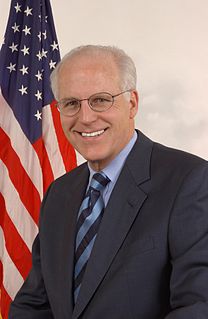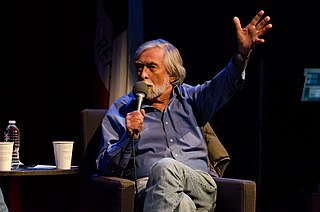Цитата Кристофера Шейса
Но я бы сказал, что более длительную войну вести учет сложнее, чем более короткую.
Связанные цитаты
Разведывательное сообщество настолько обширно, что людей, имеющих доступ к совершенно секретным данным, больше, чем людей, проживающих в Вашингтоне. В этом году США потратят на войну в Афганистане больше, с поправкой на инфляцию, чем мы потратили на войну за независимость, войну 1812 года, мексиканско-американскую войну, гражданскую войну и испано-американскую войну вместе взятые.
Потери в Гражданской войне больше, чем во всех других войнах — во всех других американских войнах вместе взятых. В той войне погибло больше людей, чем во Второй мировой войне, Первой мировой войне, войне во Вьетнаме и т. д. И это была война за превосходство белых. Это была война за создание государства, в основе которого лежало порабощение чернокожих.
Подобно тому, как ядерные стратеги времен холодной войны могли спорить о победе в ядерной войне, имея больше выживших, сторонники войны с глобальным потеплением могут считать, что Соединенные Штаты, Западная Европа или Россия лучше способны пережить климатические нарушения и манипуляции, чем, скажем, Китай. или страны Ближнего Востока.
Проблема с Первой мировой войной, например, в том, что люди думают, что война была неизбежна, но я с этим не согласен. Если вы посмотрите на холодную войну, вы можете утверждать, что война должна была произойти между Советским Союзом и его союзниками и Соединенными Штатами и их союзниками, но этого не произошло.
В тотальной ядерной войне более разрушительная сила, чем во всей Второй мировой войне, будет высвобождаться каждую секунду в течение долгого дня, который потребуется для падения всех ракет и бомб. Вторая мировая война каждую секунду — в первые часы погибает больше людей, чем во всех войнах в истории вместе взятых. Оставшиеся в живых, если таковые найдутся, будут жить в отчаянии среди отравленных руин цивилизации, покончившей с собой.
Возможно, моя ненависть к войне ослепляет меня настолько, что я не могу понять доводы, которые они приводят. Но, на мой взгляд, превентивной войны не существует. Хотя это предположение неоднократно высказывалось, никто еще не объяснил, как война предотвращает войну. Хуже того, никто не смог объяснить тот факт, что война создает условия, порождающие войну.
Объявление войны никогда не было конституционным требованием для военных действий за границей. Соединенные Штаты применяли силу за границей более 130 раз, но объявляли войну только пять раз - война 1812 года, мексиканско-американская война, испано-американская война, а также Первая и Вторая мировые войны.


































